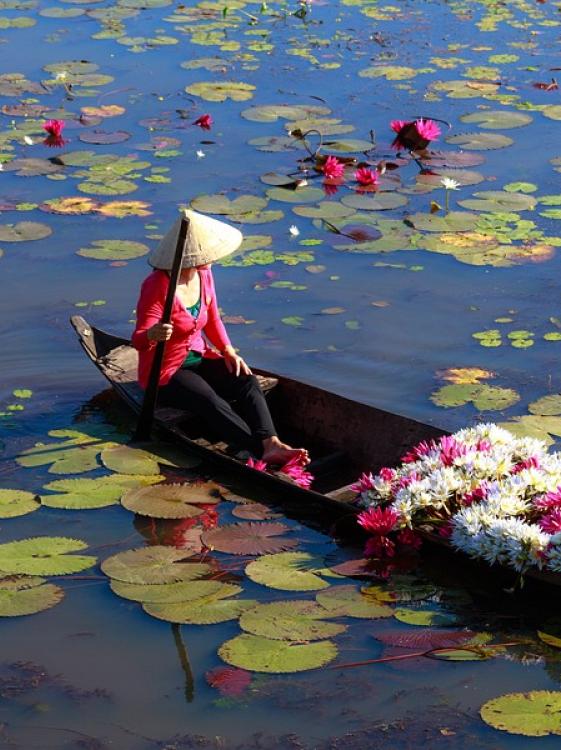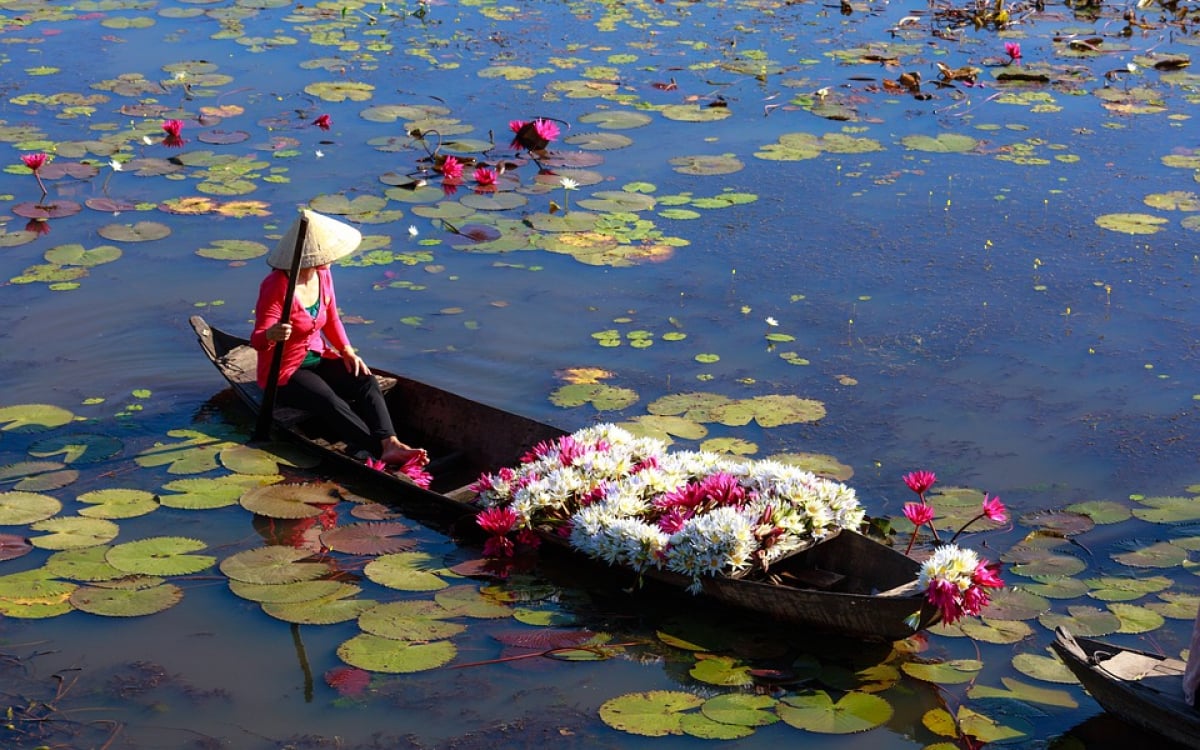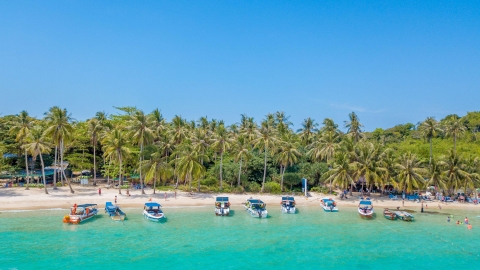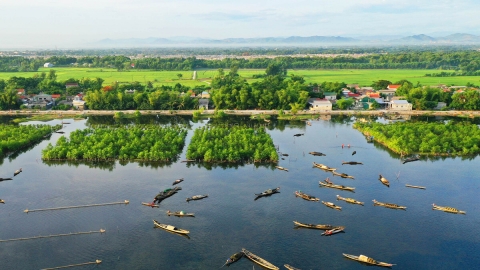MANY TOURISM POTENTIALS REMAIN UNTAMED
Originally a fertile region with diverse natural resources and identified as one of the seven tourism sub-regions of the country, the Mekong Delta possesses full potential and unique cultural characteristics to develop into an important resort destination in the South. However, the forms of garden and river tourism that attracted tourists and made a strong impression many years ago have recently become less prominent compared to many other resort destinations. Could it be that these products are no longer attractive, or that tourism development is not yet synchronized and is not fully utilizing the region's potential?
The Mekong Delta possesses abundant tourism resources, with a canal system stretching over 28,000 km, diverse ecosystems ranging from freshwater to saltwater; and especially a rich treasure trove of folk culture. Tourism in the Mekong Delta can develop in many forms, including: ecotourism, resort tourism, beach and island tourism, cultural and historical tourism, spiritual tourism, community tourism, agricultural tourism, and MICE (Meetings, Incentives, Conferences, Exhibitions, and Exhibitions) tourism. Community-based tourism is particularly noteworthy because it not only helps local people protect the ecological environment and preserve and promote indigenous culture, but also allows tourists to participate in many sustainable experiences with nature.
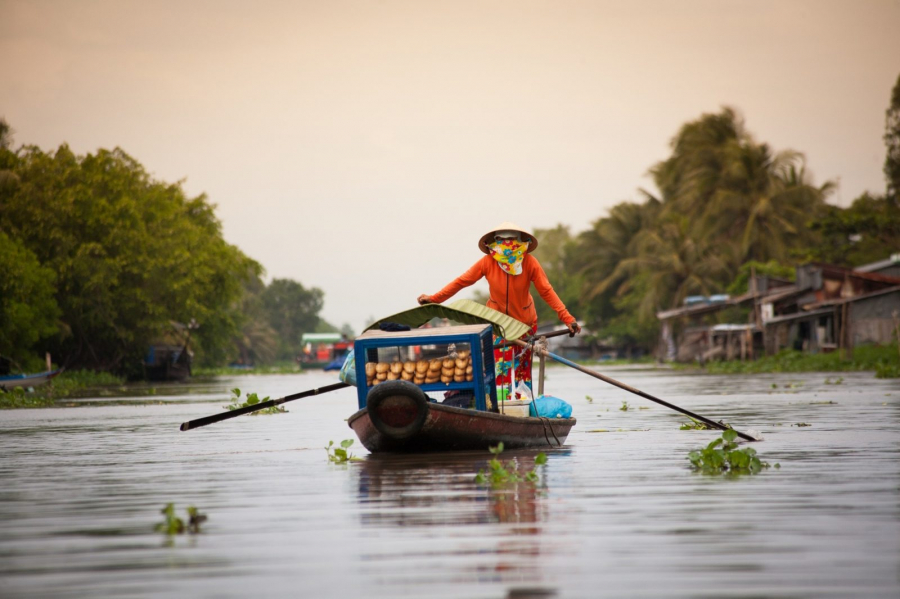
Traditional forms of garden tourism and river tourism have recently become less appealing than before.
However, in reality, community-based tourism in this region is only in its initial stages. The Mười Ngọt community-based tourism model in Cà Mau is one example; it took six years of research to develop, characterized by taking tourists to "harvest honey" in the U Minh Hạ forest. However, this model still has many aspects and ideas that need to be implemented and still faces difficulties regarding transportation, electricity, and clean water. Similarly, the community-based tourism model linking the development of a forest-crossing tour route in Mũi Cà Mau National Park (high-speed boat trips, eating oysters, seafood, etc.) also originated from the practical needs of people engaged in oyster farming and high-speed boat operation, with the desire to find a way to both preserve their livelihoods and exploit the potential of the forest and the life of their fishing village. But after eight years of development, the model has faced difficulties in terms of both funding and the tourist market.
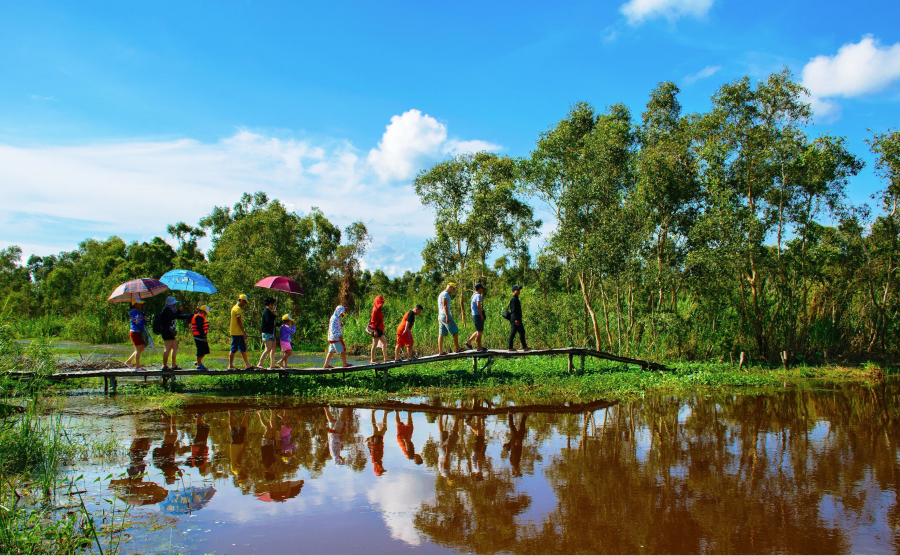
Tourists explore the U Minh Ha forest in the Muoi Ngọt community tourism model, Ca Mau.
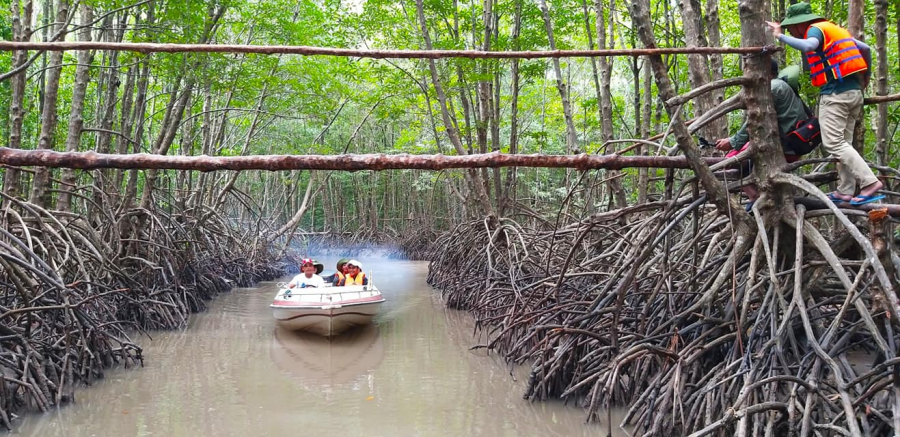
A forest trekking route in Mui Ca Mau National Park.
It can be said that a common characteristic of those involved in ecotourism and community-based tourism in many provinces and cities of the Mekong Delta is "finding their own path," independently exploring, upgrading, and navigating difficulties on their own... Community-based tourism on Con Son Island in Can Tho province is no exception. Six years ago, the people sought a suitable model for tourism linked to environmental protection, promoting local culture, and enhancing the value of agricultural products. According to local people, when they started, they mainly learned from the feedback of tourists to understand how to develop products and connect with travel agencies for promotion. The people faced many difficulties, including a period where community ties had to be broken due to limited resources and a lack of awareness of the model's value.
WHAT NEEDS TO BE DONE TO MAINTAIN AND DEVELOP AFTER THE PANDEMIC?
1. Investing in infrastructure systems
According to statistics from Savills Hotels, a subsidiary of Savills Group, the supply of hotels and resorts in the Mekong Delta is still quite limited, with only 28 mid-scale and larger accommodations currently operating. With its advantageous geographical location adjacent to Ho Chi Minh City, the Mekong Delta has many advantages in attracting a diverse range of tourists, as the region is home to many major transportation hubs nationwide. However, compared to destinations easily accessible by road from Ho Chi Minh City such as Ho Tram, Vung Tau, and Da Lat, hotel business in the Mekong Delta is somewhat less vibrant. This is partly due to the role of infrastructure in tourism development.
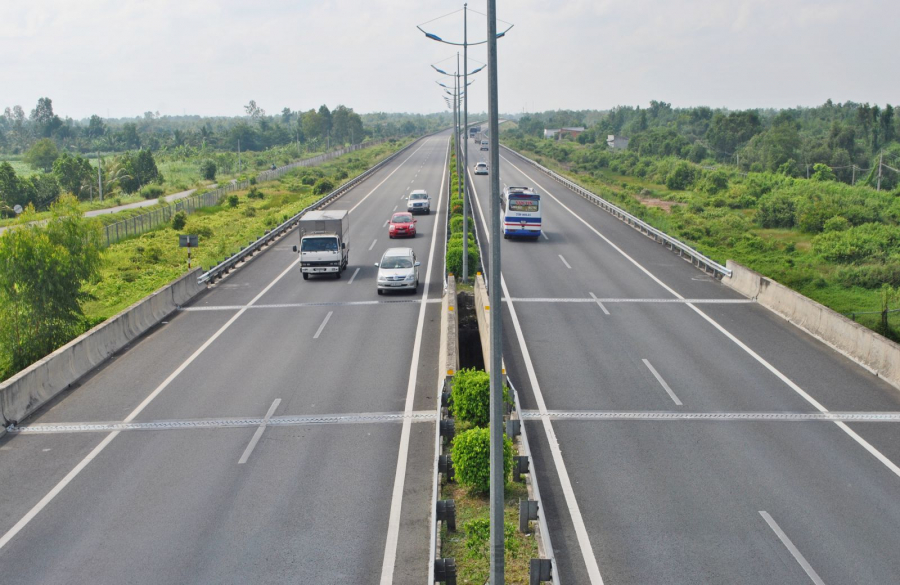
The development of expressways is a crucial catalyst for boosting regional tourism.
The development of expressways to facilitate easier travel for tourists is considered a crucial catalyst for boosting regional tourism. Mr. Vuko Kralj, General Manager of Azerai Can Tho Resort, stated: "Before the pandemic, in addition to 10 domestic routes, Can Tho International Airport served 4 international routes, directly connecting to regional transportation hubs including Bangkok, Kuala Lumpur, Seoul, and Taipei. Regarding road transport, expressways are under construction, such as the Trung Luong - My Thuan section, and in later phases will connect the Ho Chi Minh City - Can Tho route, shortening travel time. Implementing projects to improve transportation infrastructure will help the region expand its access to both international and domestic tourist markets, thereby enhancing the region's competitiveness on the Vietnamese tourism map.”
2. Developing unique tourism products
Currently, the trend of green tourism and responsible tourism is strongly influencing tourist preferences, with more and more people seeking cultural, community-based experiences that are friendly and environmentally responsible. However, in the Mekong Delta, most ecotourism and community-based tourism models are developed by local people who have transitioned from gardening and farming to tourism activities. Therefore, the products are small-scale, mainly agricultural products and services, and have not yet become professional. At the same time, local people also face many difficulties regarding policies, capital, and human resources.
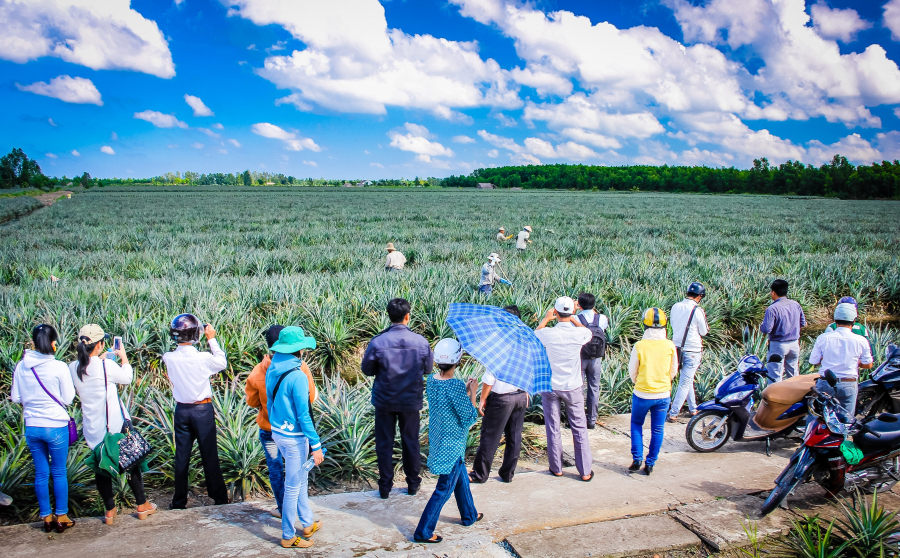
Tourists visit the pineapple fields at Cau Duc Pineapple Community Tourism Village, Hau Giang.
Therefore, developing community-based tourism requires the attention and involvement of all sectors and levels of government, along with appropriate policies and mechanisms. Each province and city needs to base its tourism development plans on scientific research into the culture and lives of local residents, aligning them with the core values of the community. This will guide local people in creating products that match local advantages, meet service standards, and cater to tourist preferences.
3. Diversify new experiences.
In recent years, international tourists have tended to seek authentic and down-to-earth experiences through interactions with local people and exploring the unique characteristics of the destination. This is also an advantage for the Mekong Delta region to create unique and distinctive tourism products. Besides river tours, orchard tours, and community-based tourism, many tourism investors also believe that the provinces of the Southwestern Mekong Delta need high-end products in the future that capitalize on the strengths of the riverine region, such as eco-tourism combined with health care, farms, and nature-oriented activities.
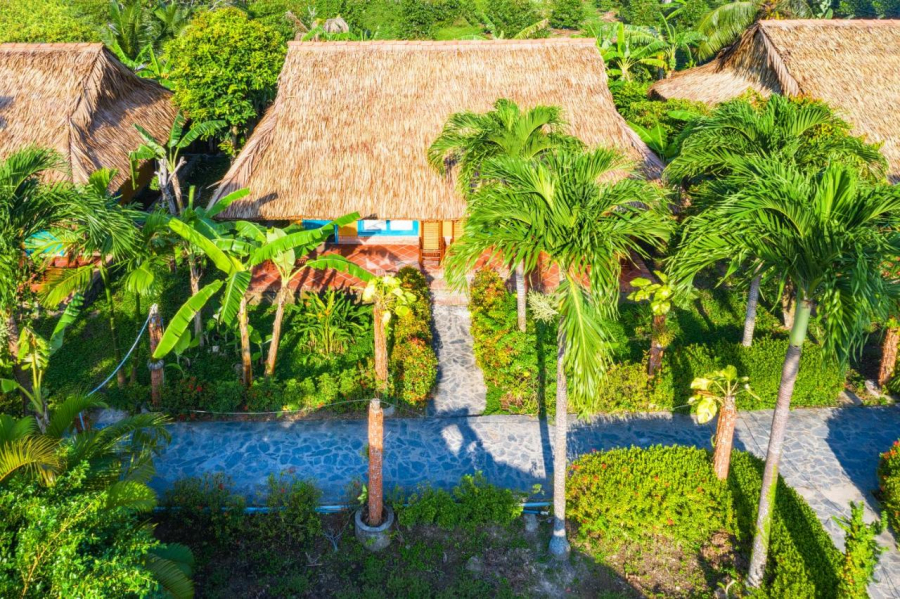
Mekong Lodge Resort.
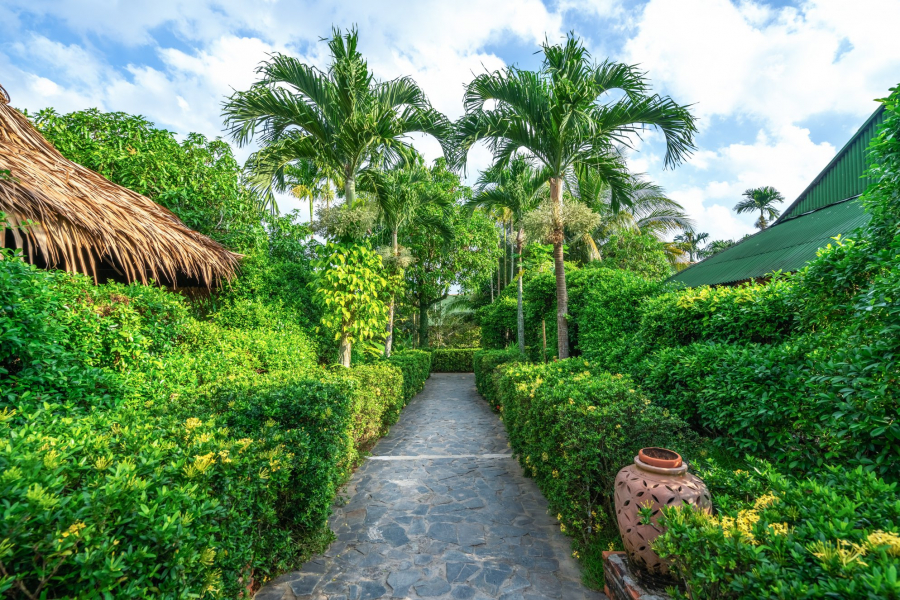
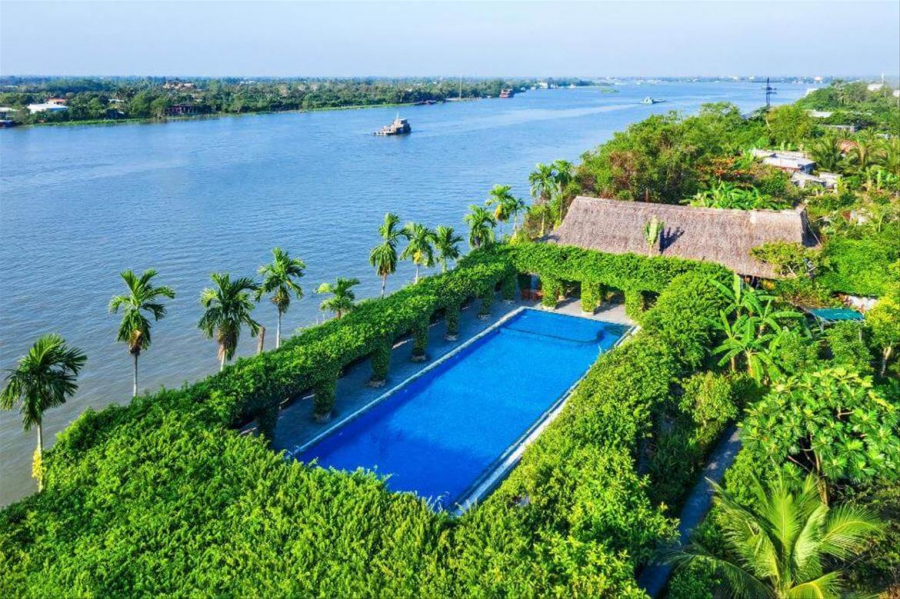
For example, the Mekong Lodge eco-resort in Tien Giang province features 30 separate bungalows surrounded by lush greenery, providing a fresh and cool atmosphere, along with various community tourism activities such as visiting traditional craft villages, cycling around ancient villages, and fishing. Similarly, TMG Group has launched the Victoria Mekong Cruise, a yacht with 35 cabins and full amenities for 3-5 night journeys on the Mekong River. These models are contributing to the diversification of tourism products in the region.
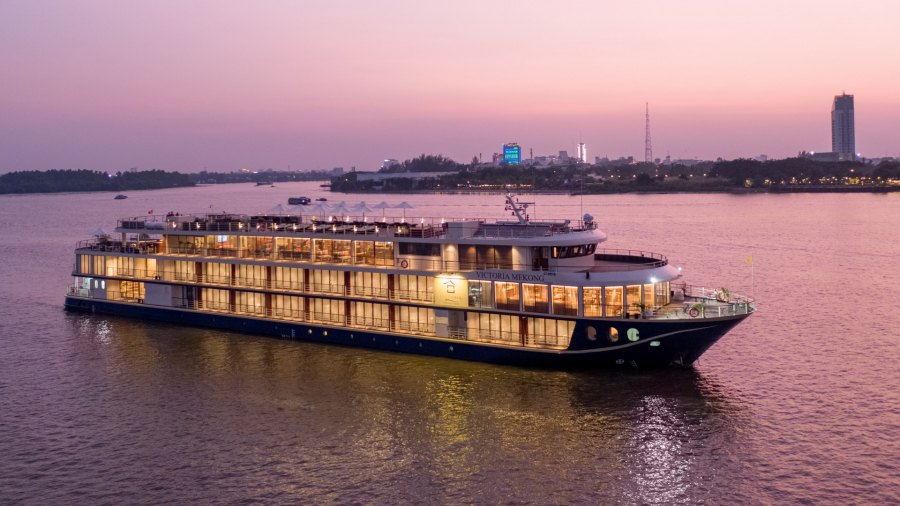
Victoria Mekong Cruise.
4. Connectivity with neighboring regions
Tourism experts also recommend and emphasize the development of regional linkages and coordination between the provinces/cities of the Southwestern region with Ho Chi Minh City and other neighboring provinces to support the expansion of tourism demand, providing longer and more diverse experiences for tourists.
By building and enhancing cooperation and linkages between travel companies, service providers such as restaurants, hotels, and river-based entertainment activities like yachts and cruise ships, the Mekong Delta can be developed and its image strengthened, connecting tourist attractions in the region. The goal is to present the Mekong Delta not as a standalone destination, but as an integral part of a journey exploring the southern part of Vietnam. Achieving this requires a long-term strategy that maintains and promotes local cultural strengths, while also fostering creativity in developing new tourism products.
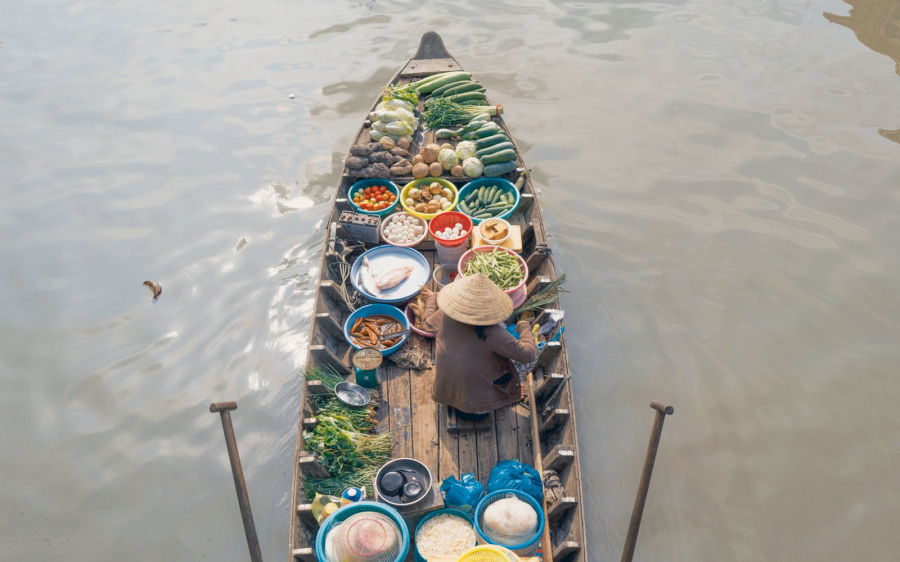
Besides focusing on the current fight against the pandemic, Vietnam's tourism industry in general, and the Mekong Delta tourism in particular, can use this time to reflect and plan for the future. The Covid-19 pandemic has been a major cleansing process; after the pandemic, which tourist destinations or resort products will emerge and thrive? The answer likely begins with planning and seizing opportunities during this challenging period.
Additional information
Savills Hotels is a specialized division of Savills Group with extensive experience in consulting, development, and investment in resort real estate. Not only do they possess a deep understanding of the market, but the Savills Hotels team also has many years of practical experience in the real estate markets of various countries.
Website: savills.com.vn

 VI
VI EN
EN



